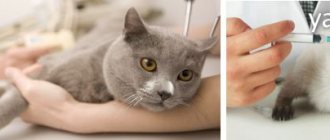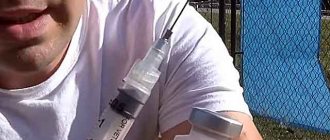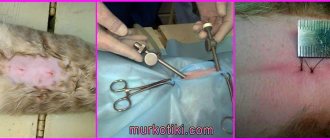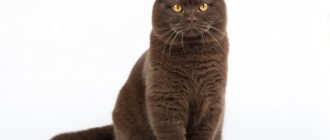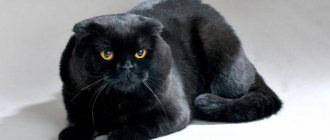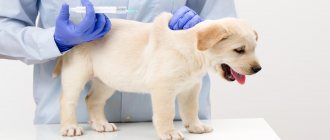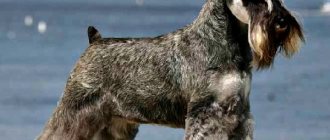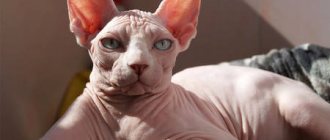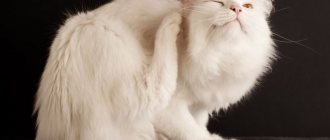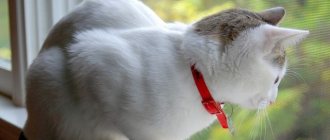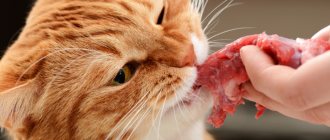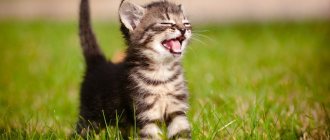Scottish Fold kittens are vaccinated at an early age. Veterinarians advise vaccination when babies are about 3 months old. In exceptional situations, the injection may be given earlier or later, but this must be discussed with the veterinarian. After the first vaccination, you will need another one, which is given after 3 weeks. Subsequent vaccinations are done once every 12 months.
Schedule
Absolutely all Scots, regardless of ear shape (Scottish Fold or Scottish Straight), need regular vaccinations. The age at which the first vaccination is given depends on the type of feeding the kitten is fed.
Babies who feed on mother's milk receive immunity from the cat, so they are given the first vaccination at 3 months. Kittens that have already switched to artificial feeding are vaccinated at the age of 2 months.
Revaccination is carried out according to schedule.
Vaccination schedule for Scottish kittens:
Prevention of disease Age of primary vaccination (in weeks) Revaccination Subsequent vaccinations
| Rhinotracheitis | 8-12 | After 21 days | Annually |
| Panleukopenia virus (distemper) | 8-12 | After 21 days | Annually |
| Calicivirus | 8-12 | After 21 days | Annually |
| Chlamydia | 8-12 | After 21 days | Annually |
| Rabies | 12-14 | Need not | Annually |
| Leukemia | 8 | After 12 weeks | Annually |
What is the vaccination schedule like?
Vaccinations for Scottish cats begin at two months of age or after they stop feeding on their mother’s milk, which contains ready-made antibodies. Breeders must sell already vaccinated individuals. If a pet is given to another home at the age of two months, then its first vaccination will take place under the supervision of the new owner. In the period before immunization, you need to be extremely careful and minimize the likelihood of infection of your little pet.
A Scottish kitten should not be given the vaccine without consulting a specialized specialist. It is best to carry out the procedure no earlier than three months after birth. After another fourteen days, the doctor will prescribe an anti-rabies injection. It is placed once, and then repeated after one year.
Table 1. Vaccination schedule for a Scottish kitten
| Infectious disease | Primary vaccination (week of life) | First revaccination | Second and subsequent revaccinations |
| Rhinotracheitis | 12 weeks | Done after 3 weeks | Needs to be done every other year, annually |
| Panleukopenia | |||
| Caliciferosis | |||
| Chlamydia | |||
| Rabies | 14 weeks |
If the vaccination was not done within the recommended time frame, it can be done at any convenient time after contacting the veterinary clinic. Experts call the animal’s good health and absence of elevated body temperature a prerequisite for vaccination. Old cats, in whom the risk of side effects increases several times, are vaccinated with caution.
Why is vaccination necessary?
Veterinarians insist on mandatory vaccination of all pets, regardless of whether there are other animals at home or whether the Scot will be walking outside. This need is caused by the high risk of illness from a virus that can accidentally enter the house.
Such infections include panleukopenia, calicivirus and others.
Important! Vaccinations and regular revaccination will protect Scottish kittens from most diseases.
First vaccination: rules and precautions
Scots are very delicate animals, so they are easily susceptible to viruses. The kitten can pick up an infection on the way to the clinic. Therefore, it is better to immunize your pet at home for the first time. To do this, you need to call a specialist. If you have experience, you can administer the vaccine yourself.
An unvaccinated kitten has no immunity. When visiting the veterinarian's office, he may get sick. It is better to take all possible safety measures and protect the animal from infectious agents that can enter its body at any time.
What vaccinations does a Scottish kitten need?
There are a number of diseases of Scottish fold and straight-eared cats that pose a serious threat to the life of the animal. In order to protect the kitten, mandatory prevention in the form of vaccinations is necessary.
If the pet will be at home all its life
Even if the Scotsman is expected to spend his life in an apartment, the owner will have to vaccinate the kitten against the following diseases:
- panleukopenia (distemper);
- calicivirus;
- rhinotracheitis;
- rabies.
You cannot be sure that your pet will not “catch” the disease; it can only be insured through timely vaccination.
If the pet goes outside
Scottish kittens that will go for walks, participate in exhibitions, competitions, communicate with relatives of the opposite sex for mating, in addition to the above diseases, are additionally vaccinated against the following infections:
- leukemia virus;
- trichophytosis and microsporia viruses (ringworm);
- chlamydia.
Important! The first vaccination against lichen is given at the age of 8-12 weeks, repeated - after 10 weeks.
Main types of vaccinations
Vaccination is necessary to preserve the life and good health of cute fold-eared animals. For this purpose, complex vaccines are most often used, creating immunity against several infections at the same time. The list of the most important vaccinations for a Scottish Fold kitten includes vaccines against rhinotracheitis, distemper (scientific name panleukopenia), calicivirus, rabies and chlamydia. Less commonly used are injections for feline leukemia, infectious peritonitis, and trichophytosis.
There are Russian and foreign-made vaccines on the pharmaceutical market. When vaccinating a kitten, it is better to trust the opinion of the veterinarian and choose the drug recommended by the doctor. Most often, experts advise vaccinating Scottish Fold pets with a French or American solution, which are known to be well tolerated and effective.
Preparing for vaccination
Sick Scottish Straight and Fold kittens cannot be vaccinated. Before the procedure, it is necessary to conduct a veterinary examination of your pet.
Two weeks before vaccination, treatment is carried out against fleas, ticks, and other external parasites and anthelmintic drugs are given. If, after prophylaxis, helminths leave the body, anthelmintic measures are repeated after 10-14 days. A scheduled vaccination for a Scot is carried out only after 2 weeks.
You need to reschedule the vaccination if:
- The kitten is teething;
- the animal looks lethargic and apathetic;
- the cat is pregnant or nursing kittens;
- the pet has suffered stress.
How can a veterinarian help your kitten?
Veterinary doctors specialize in providing medical care in a comfortable home environment that only the owner can create. This is why administering injections at home is so important. After the injection, the cat can immediately fall into the hands of a caring owner, who will console him and, of course, give him a treat. Having a doctor visit your home is very convenient, just check out our advantages:
- You don't waste time visiting the veterinary center.
- You can get modern doctor's help.
- Avoid nervous sitting in line.
- You can communicate more productively with a specialist.
All these advantages prevail over the advantages of staying in a regular veterinary clinic. very convenient that you can donate blood, if necessary, at your home. Of course, preparation for analysis will also be required, but that’s a completely different story. Caring for straight-eared and lop-eared kittens is slightly different , since lop-eared kittens have a more weakened immune system. A veterinarian from our Ya-Vet center will also give recommendations on caring for the kitten in the period after the vaccine.
Which vaccine should I choose for a Scot?
Vaccines for Scots are either complex or single-component. Complex drugs include drugs against several diseases.
These include: “Nobivak Triket Trio”, “Purevax”, “Multifel 4”, “Felovax 4”.
Single-component products are used to prevent one infection:
- leukemia – “Leukocel 2”;
- rabies – “Nobivak Rabies”, “Rabizin”;
- lichen – “Microderm”;
- chlamydia – “Chlamydia”, “Katavac Chlamydia”.
Care and monitoring of animals after vaccination
In the first days after the procedure, you need to pay special attention to the kitten’s health.
Tips for those who prefer to administer the vaccine to their pet themselves:
Important! If vaccination is carried out in a veterinary hospital, the doctor should give recommendations on the care of the Scot for the first time after vaccination.
Is it worth vaccinating at all?
Pets of the Scottish Fold breed, as well as other animals, can become victims of terrible viral invasions that can knock down not only the animals, but also their owners, and well-groomed pets that never go outside are also not immune from illnesses.
How is it possible for a young furry who has never been outside to be defeated? Suppose some infectious animal went to the toilet in the front garden. Precipitation has dissolved feces in the puddles that people walk through on their way from work to home. Now, if dirty shoes are located where a young Scot can get to them to become infected, he will only have to frolic with them once.
It often happens that a furry baby needs to be immediately brought to a veterinary hospital for regular treatment procedures, then vaccinations are also needed, because the animal’s immunity is reduced due to medications, which increases the likelihood of infection. In order for your pet to develop immunity to viruses, he should definitely get vaccinated.
Although not a single vaccination can protect a baby absolutely, its use helps to minimize the risk of consequences.
Possible complications and allergic reactions in a Scot
Vaccination, like any medical intervention, can cause a number of complications and allergic reactions. This depends not only on the quality of the vaccine, but also on individual intolerance to the drugs.
During the first time after the procedure, you may observe lethargy, apathy, and worsening sleep and appetite in your Scottish kitten. This is a normal reaction of the body to stress. These symptoms usually go away within a few days.
Vaccination sometimes causes complications. This happens more often if the vaccine was given to a sick animal.
The most common complications:
In such cases, you should immediately contact your veterinarian and follow his instructions.
Individual intolerance to the vaccine sometimes leads to allergic reactions with the following symptoms:
- diarrhea and vomiting;
- itching;
- loss of consciousness.
Important! Symptoms of an allergic reaction appear quickly. It is not recommended to leave the veterinarian within 30 minutes after vaccination. If an allergy appears, specialists will have time to take action.
